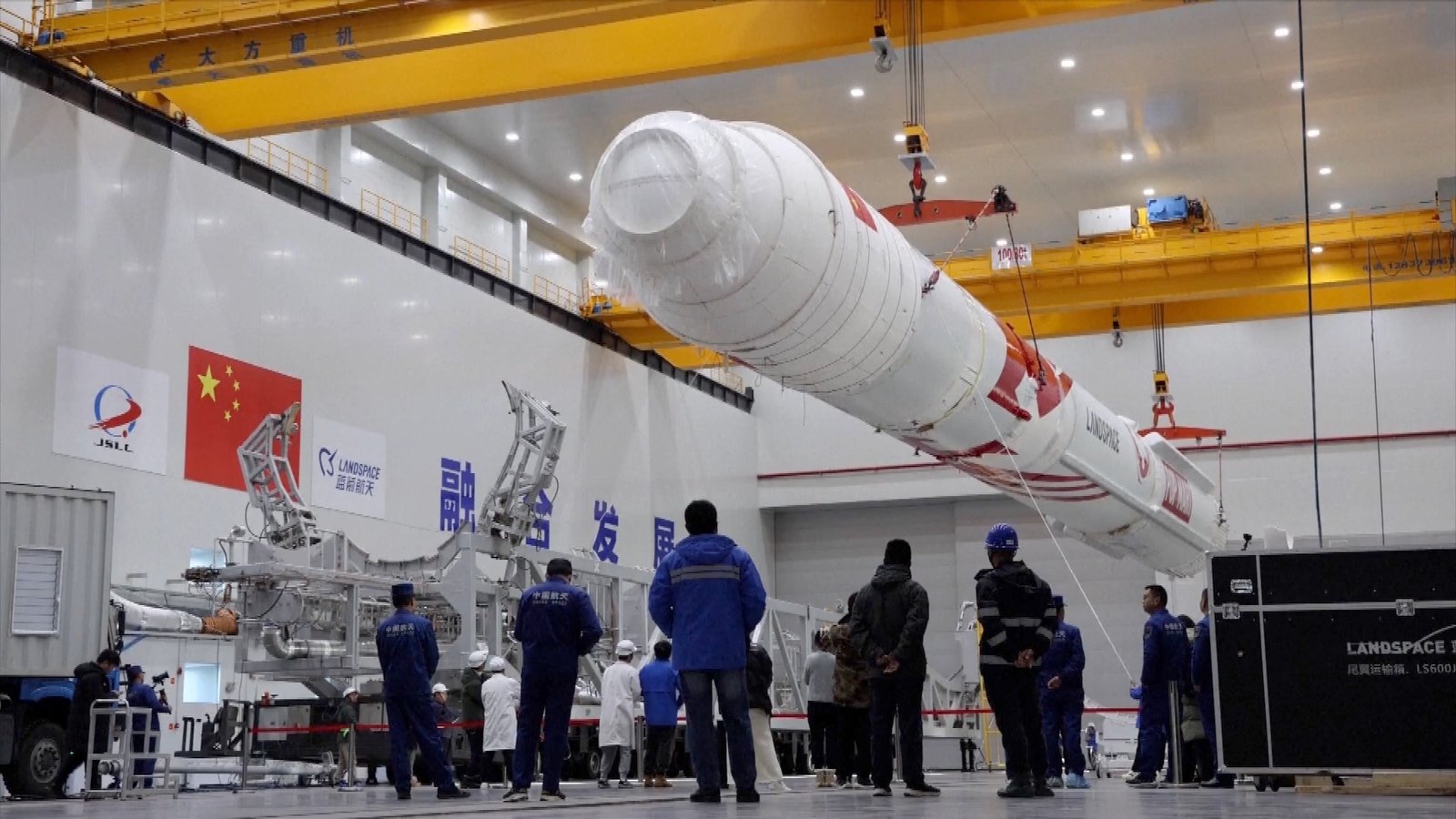Beijing-based startup, Landspace, has reached a significant milestone in pursuing reusable rocket technology.
Beijing-based startup, Landspace, has reached a significant milestone in pursuing reusable rocket technology. On January 19, the company successfully launched and landed a test version of its Zhuque-3 rocket at the Jiuquan Satellite Launch Center in Inner Mongolia.
The test flight saw the Zhuque-3 soar approximately 1,150 feet (350 meters) into the sky during a brief 60-second flight. The rocket then landed precisely within 7.9 feet (2.4 meters) of its target, marking the mission as “a complete success,” according to Landspace.
Zhuque-3 is a two-stage, stainless-steel rocket, with a reusable first stage similar to SpaceX’s Falcon 9. Landspace aims to begin operational flights of the Zhuque-3 in 2025. The rocket is expected to reach a height of about 250 feet (75 meters) and possess the capability to carry up to 40,350 pounds (18,300 kilograms) to low Earth orbit (LEO) in reusable mode, as reported by SpaceNews.
In comparison, SpaceX’s Falcon 9, a well-established player in the reusable rocket arena, can haul approximately 50,265 pounds (22,800 kg) to LEO, according to its specifications page.
Landspace’s Achievement and Future Plans
The successful test launch of the Zhuque-3 represents a significant step forward for Landspace in its bid to join the league of companies developing reusable launch vehicles. The company’s commitment to reusability echoes the trend set by leading aerospace players, enhancing cost-effectiveness and sustainability in space exploration endeavors.
Landspace expressed confidence in the Zhuque-3’s capabilities, heralding its potential to contribute to a more economical and efficient approach to space travel. The precision landing achieved during the test flight showcases the technical prowess of the company’s engineering team and positions Landspace as a key player in the competitive space launch market.
Competitive Landscape in China’s Reusable Rocket Race
Landspace is not alone in its quest for reusable rocket technology within China. Other notable players in the space include iSpace, Galactic Energy, Orienspace, and the state-owned China Aerospace Science and Technology Corp. (CASC). Each entity is actively engaged in developing its own reusable launch vehicles, reflecting the nation’s commitment to technological innovation in space exploration.
CASC, a major player in China’s space sector, is working on a fully reusable version of its future Long March 9 heavy lifter. The competition among these companies signals a vibrant and competitive environment, fostering advancements in rocket technology that could reshape the landscape of space exploration in the coming years.
Global Implications and Collaborations
The success of Landspace’s Zhuque-3 test launch not only marks a triumph for the Chinese company but also holds global implications. As the space industry continues to evolve, the development of reusable rocket technology contributes to broader efforts aimed at reducing the cost of space travel and making it more sustainable.
International collaborations in space exploration, with a focus on reusable rocket technology, may become increasingly important. The strides made by companies like Landspace and SpaceX set the stage for potential partnerships that could drive innovation and open new frontiers in the exploration of our solar system.
In conclusion, Landspace’s recent achievement with the Zhuque-3 test launch underscores China’s commitment to advancing space exploration capabilities. With a competitive landscape and a growing emphasis on reusability, the future holds exciting possibilities for the nation’s space endeavors, with potential global implications for collaborative space exploration missions.
